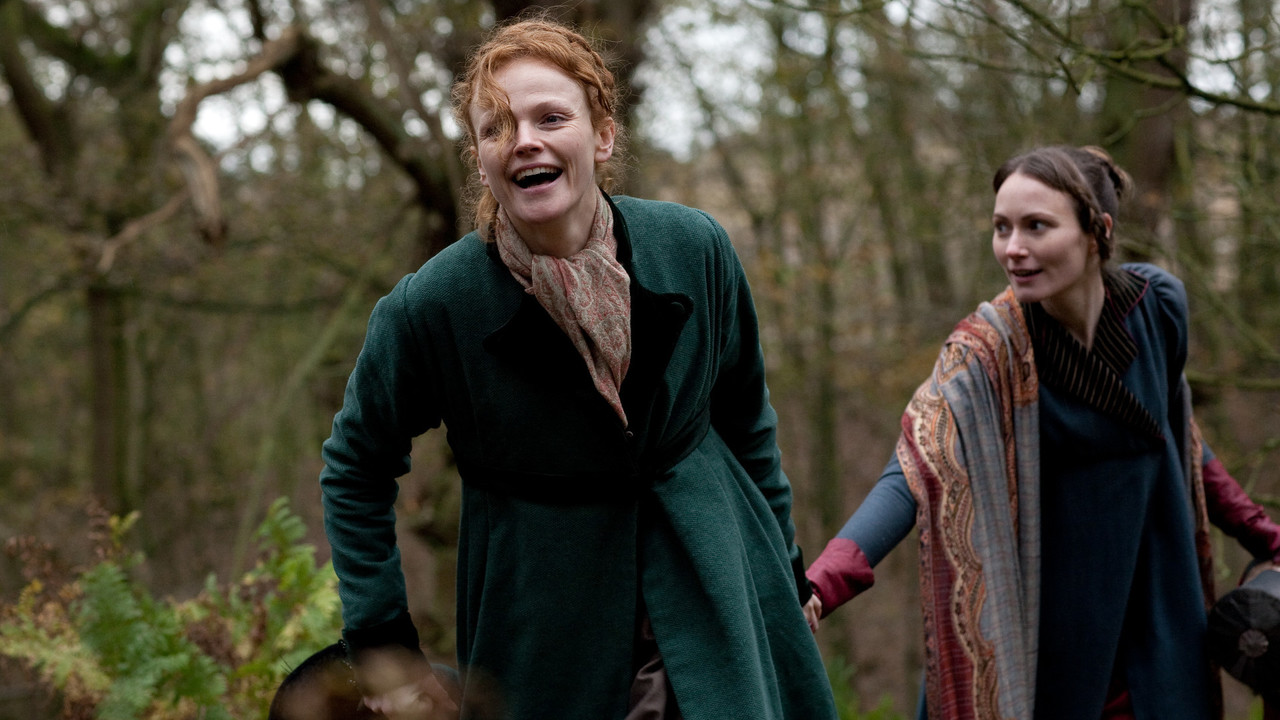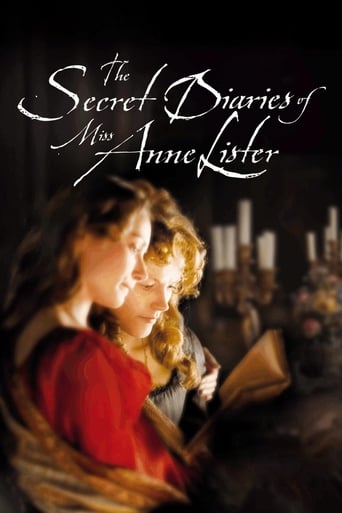

Love is all the more precious when the chance of finding a substitute is low; therefore, in the case of same sex relationships, finding and keeping love intact is all the more important because there are fewer chances of getting another suitable substitute, especially if such relationships existed in early nineteenth century. Even in the world today, homosexuals have to take extra precaution while searching for their soul partner, because making a move with the wrong person (a straight person) can ruin well-developed relationships. Movies, television shows, books and experiences have shown that in many cases, it is the relationship between two people of the same sex that is more mature and more intimate in its understanding of the true importance of love. Anne Lister cherished the love she had for Mariana because she could not find a suitable substitute for Mariana, while Tib could only think of Anne as her suitable partner. Mariana on the other hand had options with her, most probably because she was bisexual. Some reviewers who are calling Anne's relationship 'prurient' only because of the open manner in which she displays her affection towards Mariana (and sexual desires towards other lesbians) forget that she did not have a wide range of options for whom she could display either her love or affection. Anne basically has greater masculine tendencies such as constant craving for love and affection, and does not really care much what the people around her would say when she eyes/stares/holds hands with her object of affection. I'm telling you, had this involved a straight couple, people wouldn't have labeled the intimate scenes between the couple as 'prurient'. Yes, Anne didn't hesitate in openly showing her desperation in holding the relationship together because it would be difficult to part with someone whom she had found presumably after years of fruitless searching.The Secret Diaries of Miss Anne Lister is less about the diaries as the key motif and more about Anne's relationship with three women - Mariana, Tib and Ann - and the particular period in which the relationships existed. Anne and Mariana love each other dearly but after Mariana decides to marry a rich man named Charles Lawton, Anne decides to forget about her and focus on educating herself and finding another substitute for Mariana. She tries her luck with a young maiden Miss Browne but soon realizes Browne is really not the girl for her; Anne's friend meanwhile has unrequited affections for Anne. When Anne gets a letter from Mariana telling her to come over, the two ladies rekindle their affair to Tib's dismay. It is only later that Ann Walker enters the picture (she is seen in a few scenes before but as a mute spectator) as Anne's business partner (not going to reveal any further for fear of disclosing spoilers). We also get to watch the family's and the society's reaction towards Anne: while Anne's unmarried uncle and aunt do not mind her daughter's preferences, the society looks with mixed feelings towards her – the men jokingly label Anne the 'Gentleman Jack' while at the same time admire her business acumen and headstrongness, while the women gossip (which is far more painful) but again cannot deny how honest and natural Anne is.Maxine Peake does a fine job channeling the essence of Anne's character, and the job is especially hard because we see Anne for almost the entire time on screen. She makes Anne's character unique from the other lesbian characters in the movie, which is very crucial for understanding how each character differs in her thinking. While Anne would be the suitable 'husband' for Mariana, she would be more of a 'wife' had she married an more boisterous Tib; maybe that is the reason why Anne could not see herself with someone like Tib – she wanted to play the man. Mariana had to keep a balance between her masculine ambitions and feminine tenderness, and she does it very well. But it is Susan Lynch who is even more impressive in her short role as Tib, especially in the dinner scene where she starts an inappropriate conversation out of jealousy and dejection. Even Anna Madeley is interesting as the delicate Mariana who while cherishing Anne's affection, cannot think of sacrificing her position in the society for her. Ann Walker is also good as the shy, suppressed and introverted woman who holds a secret with her. I have always been quite impressed by the production design in British films – the movies really seem to color and deck their movies very well. The period costumes are fabulous, giving each character a unique personality; even the hats are carefully chosen according to what is most appropriate for a character. The television film should have been named something else, only because we hardly find much time devoted to Anne's secret diaries leaving out the central theme of the title itself. It could have been named 'The Forbidden Love of Anne and Mariana' or something of that sort.
... View More"I love and only love the fairer sex, and thus beloved by them in turn, my heart revolts from any love but theirs." - Anne Lister, Journals, Oct 29, 1820The Secret Diaries of Miss Anne Lister (2010) (TV) was written by Jane English and directed by James Kent. This film is a biography, because Anne Lister [1791 - 1840] was, indeed, a historical figure who managed to live her life as a happy and fulfilled lesbian. Moreover, Ms. Lister did keep voluminous diaries. Only a small portion of the diaries were actual secret--i.e. written in code. Anne Lister was so intelligent that the code she devised wasn't deciphered for almost 100 years. The encoded part of the diary described Anne Lister's romantic and sexual experiences.By a combination of enormous intelligence, class privilege, and unbreakable will, Anne Lister was able to maintain a lesbian life style in a society where such behavior was rarely tolerated.This is an excellent film, with strong performances from all the actors, and an absolutely stellar performance from Maxine Peake as Anne. Because it's a BBC production, the production values are high and the costumes and location shots are entrancing. Obviously, this movie was made for TV, so it will work well on the small screen. However, it is really glorious on the large screen, which is how we saw it. The film was shown at the Dryden Theatre, as the closing night offering of the terrific ImageOut: Rochester Lesbian and Gay Film Festival. Don't miss this movie!
... View MoreMelodramatic, heteroed-down version of the life of a predatory, hairy, self-assured, male- identified 19th century woman of means. I knew nothing of Anne Lister's life, but found this movie patronising from the word go. Watching the nervous though more honest documentary included on the BBC DVD afterwards, confirmed why. The film portrays Lister as a femme, melodramatic woman whose only quirk is to wear black and no makeup. The sex scenes are unconvincing, and great liberty is taken to no doubt make the main character a bit more palatable for mainstream audiences. In the documentary it emerges that Lister was rather arrogant, very butch, shrewd in love and business, and also sported a grey stubble. The film fails to examine what it really must've been like for a lesbian in Lister's position ~ instead we are treated to a flaky tragic love story which might titillate hetero men and women. It feels like the film says 'lesbians are people too, and look they are all hairless and have heteronormative female traits such as big dresses, high-heel shoes and emotional theatrics". What a pity ~ let's hope someone will at some point make a serious film about this fascinating character!
... View MoreThis superb film for TV deserves the widest possible audience: it tells a gripping and true human story that surprises all those like me who thought they know the era of Jane Austen. Maxine Peake acts out of her skin as Anne Lister, the lesbian diarist whose story remained hidden form the wider public until Helen Whitbread's groundbreaking 1992 book. The film is excellent on many levels: for its up-close portrayal of the emotional and sexual lives of (lesbian) women in an era when the concept of such love (and lust) was more or less unknown; for its sure-footed cinematography that creates a just-familiar-enough epoch; and for its wonderful script by Jane English. Apparently it took 18 days to make - unbelievable. Probably the best value drama for the licence money that BBC has ever achieved. Well done to whoever commissioned this. My favourite thing: the great way interior light and 30+something skin tones are worked: women shown as women rather than constructs of the advertising-consumer nexus. My least favourite thing: what happens to Anne's final partner after Anne dies.
... View More